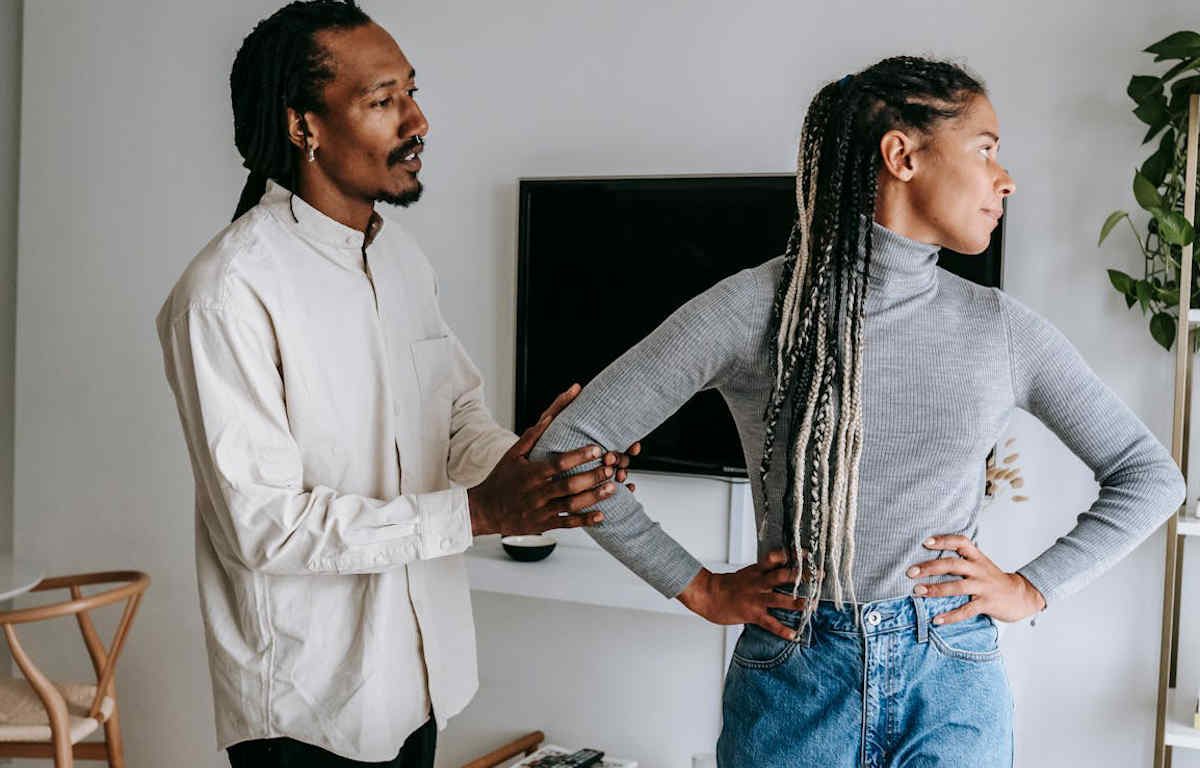We all make mistakes and it can be hard to give an apology. Ironically, apologizing when we haven’t done anything wrong, seems to come easier. But that is because we think someone is upset or we try to ease tension. We also feel compelled to say sorry when we reject someone’s invitation, but you shouldn’t have to. Putting boundaries in place or prioritizing your life is not a reason to say sorry. Know when it’s the right time to apologize and the reason for it. This is critical to maintain good relationships. But more importantly, learning to be accountable for your mistakes and improving your behaviour can support your overall self care.
Why Do I Have A Hard Time Saying Sorry?
Saying “I’m Sorry” is difficult. Most people don’t like being wrong and that can be tied to low self-worth. Others are just incapable of seeing other perspectives so they refuse to accept that there could be another way that isn’t their own. Perhaps no good can come from the apology, or at least that is what we tell ourselves. On the flip side, apologizing because it’ll make the issue go away quickly is another way that even though you say sorry, it isn’t genuine.
By saying sorry when you make a mistake, you also impact the way people see you. If you aren’t truly sorry, it comes across as fake, increasing resentment and anger from the impacted party. Beyond emotional impact, if your mistake created damage, time or financial implications, the impact could be even greater. If you don’t acknowledge the severity of the situation, you may not be taken seriously in the future. By offering to help restore things, it speaks to your character.
A word of caution. Be aware if you truly did do something wrong. Don’t apologize for things that were not your fault. Some people have a tendency to apologize for everything. This can also lead to problems. You don’t need to apologize if someone is upset for no reason or if you think it will reduce conflict. You need to say sorry when you actually say or do something wrong. This can include hurting someone physically or emotionally, or damaging their property. It also includes teasing, insulting, or disrespecting others. This behaviour isn’t right, it’s not harmless fun. Admitting you’ve done any of these things can be hard because deep down you know it’s not right. A sincere apology is a great first step.
The Importance Of A Good Apology
In order for an apology to work, it needs to be genuine. You need to be authentic. Saying what you think they want to hear is not enough. Do you really understand what went wrong? Have you taken the other person’s feelings into account? Was there irreparable damage done? Part of making a good apology is accepting that you were in the wrong, with your words, actions, or both. The next step is understanding the impact on the other person(s). And the final step is figuring out if you can make amends and the respective actions you need to take in the future.
One final thought is regarding the lesson you can learn from this situation. If you repeat your mistakes and continually say sorry without making a change in behaviour, the value of that apology diminishes or disappears altogether. Is it time to change your behaviour? What is causing you to behave this way? Getting to the root of what caused this mistake will help you limit the chances of it recurring. Additionally, you can also learn how to break bad habits and replace them with better ones. If you know that certain conversations or situations can make you say or do the wrong things, can you avoid them altogether? And if not, how can you stop yourself from repeating your mistakes?
How To Say I’m Sorry
By putting yourself in someone else’s shoes, you can start to see how your mistakes impact them. Once you are ready to say the words “I’m sorry”, make sure you understand what happened. And if you don’t, work with the other person to figure it out. Then choose your words wisely. Acknowledge what transpired. Take responsibility for your words and/or actions. Don’t blame the other person. This is for many the hardest part. A proper apology is not a blame game, it is about your role in the matter. And no excuses. This may be a little controversial, especially when you feel the world is against you, but at the end of the day, we all have issues we are dealing with. One person’s bad behaviour does not excuse you from behaving badly, hurting someone else, or creating a worse situation.
Sometimes we know that what we said or did hurt someone’s feelings. It is okay to mention that. At the same time, if you have any bad feelings over the situation, such as shame, regret, humiliation, don’t be afraid to share that too. This helps with the authenticity of the apology. By approaching the apology with kindness for them and yourself, you can strengthen the relationship. And even if that isn’t your priority, doing so with this one will help you with other relationships. It builds your communication skills and empathy.
Saying sorry builds trust.
Saying “I’m sorry” is hard, but an essential skill to learn. We all make mistakes, we are only human. Strive for a change in your behaviour when a pattern repeats itself. Hurting someone else’s feelings will never make you feel better about yourself. By learning to have empathy for the other person, you can also learn to forgive yourself. Figuring out what causes you to make these mistakes will go a long way in building a stronger self-worth, and an ability to take on responsibility, both in your personal and professional life. It’s hard to admit when we are wrong, but by identifying ways to improve, you build character.
IMAGE CREDIT: Pexels | Alex Green.

